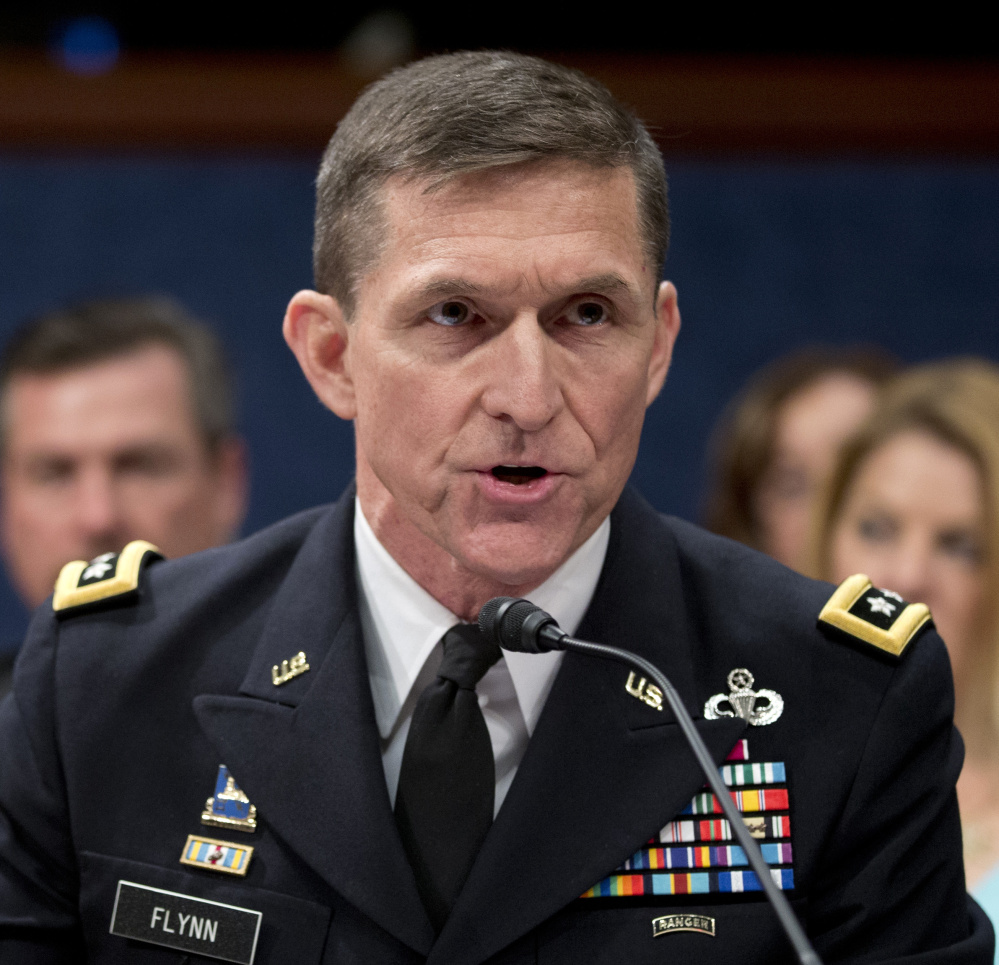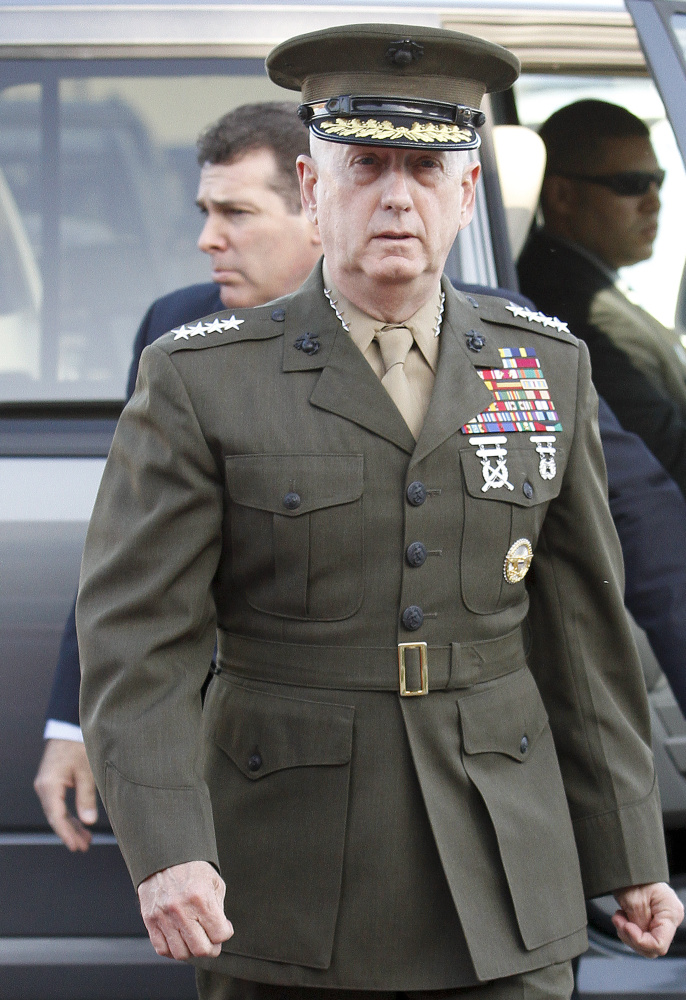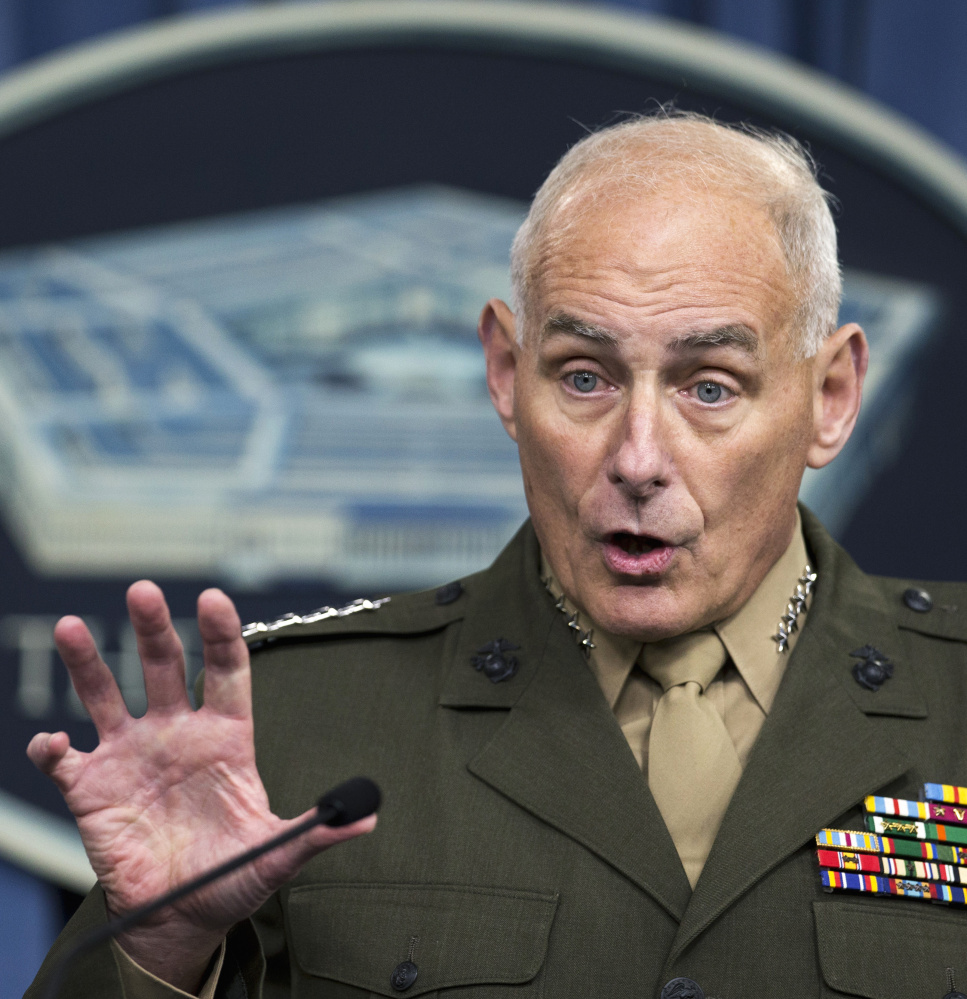President-elect Donald Trump has selected retired Marine Gen. John Kelly as secretary of homeland security, officials familiar with the decision said Wednesday, recruiting a third former member of the military’s brass to serve at the highest levels of his administration.
Trump’s choice of Kelly – and his continued deliberations about tapping as many as two more military figures for other posts – has intensified worries among some members of Congress and national security experts that the new administration’s policies may be shaped disproportionately by military commanders.
“I’m concerned,” said Sen. Chris Murphy, D-Conn., a member of the Foreign Relations Committee. “Each of these individuals may have great merit in their own right, but what we’ve learned over the past 15 years is that when we view problems in the world through a military lens, we make big mistakes.”
Despite making regular remarks on the campaign trail disparaging the nation’s generals, Trump has long shown an affinity for them. In shaping his administration, Trump has prioritized what one adviser described as “can-do, no-bull types,” which the president-elect sees as a deliberate contrast from the personnel choices President Barack Obama has made.
drawn by their swagger
If confirmed, Kelly and defense secretary nominee James Mattis, a retired Marine general with the nickname “Mad Dog,” would join retired Army Lt. Gen. Michael Flynn, Trump’s pick for White House national security adviser. Meanwhile, retired Army Gen. David Petraeus is under consideration for secretary of state, and Navy Adm. Michael Rogers is a contender for director of national intelligence.
Other figures with military backgrounds are populating the administration as well, including Rep. Mike Pompeo, R-Kan., who graduated from West Point and served in the Army in the Gulf War, is Trump’s nominee to lead the Central Intelligence Agency, while Stephen Bannon, a former naval officer, will serve the president in the West Wing as chief strategist and senior counselor.
Trump, who received multiple draft deferments and who has no military experience beyond his years at a military boarding school, is said to be drawn to generals by their swagger and dazzled by their tales from the battlefield.
Many of those he has been interviewing and consulting have spent much of the past decade and a half at war, intimately involved in the U.S. fight against global terrorism. Trump’s choices also are striking considering his noninterventionist posture in the campaign and sharp criticism of the war in Iraq and other military adventures.
As Trump formally introduced Mattis as his pick to run the Pentagon, he relished in recalling the general’s exploits, and he has likened him to George S. Patton, the legendary World War II Army general.
” ‘Mad Dog’ plays no games, right?” Trump told a roaring crowd Tuesday night in Fayetteville, North Carolina. “Led the forces that went after the Taliban and commanded the First Marine Division in Iraq. He is one of the most effective generals that we’ve had in many, many decades.”
To be confirmed, Mattis would have to receive a waiver from Congress because the law requires the defense secretary be a civilian for at least seven years before taking office. Mattis retired in 2013.
Sen. Patrick Leahy, D-Vt., said of Trump, “For a guy who got four or five deferments from the draft, he seems pretty impressed with the military.”
Trump’s heavy reliance on military leaders marks a departure from the previous three presidents, who tapped a few generals for the highest jobs with mixed success and relied mostly on people who had spent decades in civilian service, as politicians or academics or lawyers.
“Trump is clearly operating out of a particular model,” said William Galston, a senior fellow at the Brookings Institution. “Almost all of his Cabinet will be made up of people from the military or people from a corporate background, and what they have in common is strong leadership and executive decision-making.”
Sen. Claire McCaskill, D-Mo., quipped: “It’s the G&G cabinet. It does seem to be fairly limited to Goldman Sachs and generals.”
one at a time
On Capitol Hill, the two generals Trump has nominated for Senate-confirmed positions – Mattis and Kelly – have been relatively well-received.
“Can you have a Cabinet full of generals? No – not any more than you can have a Cabinet full of lawyers or a Cabinet full of business people or whatever,” said Rep. Mac Thornberry, R-Tex. But, he said: “I’m thinking of the individuals. They’re people I have incredible respect for.”
Kelly especially is likely to benefit from the relationships he cultivated among lawmakers during his years in uniform, including his role in 2014 as commander of the U.S. Southern Command, managing an influx of migrant children at the border with Mexico.
Sen. Thomas Carper, D-Del., former chairman of the Homeland Security panel, said Kelly has “genuine compassion” for immigrants and understands the root causes of the nation’s immigration challenges in Honduras, Guatemala and El Salvador.
“I will reserve judgment on many of the president-elect’s other nominees,” he said, “but with General Kelly, he’s hit a home run with runners on base.”
There does not yet appear to be a Democratic strategy to derail either nomination because of the preponderance of military figures. Sen. Angus King, I-Maine, who caucuses with the Democrats, summed up the approach: “Take ’em one at a time.”
That posture could change if Trump nominates another general to a top post, such as Petraeus at the State Department.
Daniel Benjamin, the former senior counterterrorism official at the State Department in the Obama administration and now a professor at Dartmouth College, said having too many generals in what are traditionally civilian positions is “a matter of deep concern.”
“Generals as a rule believe in hierarchies and taking orders, and if the president gives them an order you have to wonder how likely they are to push back against it,” Benjamin said. “Generals have one set of skills, and diplomacy is not in the top drawer of that tool kit.”
There was some snarky commentary on Twitter about Trump’s emerging Cabinet resembling “a military junta.” Anthony Scaramucci, a Trump transition official, defended Trump’s selections: “Decorated American Generals aren’t warmongers – they’re among the most intelligent, disciplined & patriotic people our country has to offer!”
Send questions/comments to the editors.





Success. Please wait for the page to reload. If the page does not reload within 5 seconds, please refresh the page.
Enter your email and password to access comments.
Hi, to comment on stories you must . This profile is in addition to your subscription and website login.
Already have a commenting profile? .
Invalid username/password.
Please check your email to confirm and complete your registration.
Only subscribers are eligible to post comments. Please subscribe or login first for digital access. Here’s why.
Use the form below to reset your password. When you've submitted your account email, we will send an email with a reset code.